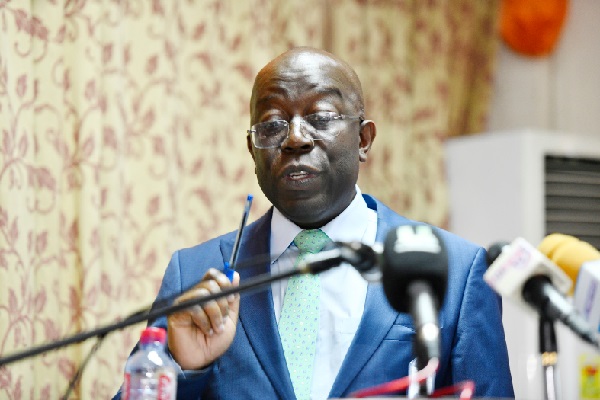The Social Security and National Insurance Trust (SSNIT) has increased monthly pension payments by an average of 10 per cent.
The review will see all 225,000 pensioners on the SSNIT pension payroll as of the end of last month have their monthly pensions increased by a fixed rate of 9.68 per cent, plus a redistributed flat amount of GH¢3.44.
Redistribution is a mechanism applied to the rate (indexation rate) to cushion members on low pensions, in conformity with the solidarity principle of social security.
The review, which was done in consultation with the National Pensions Regulatory Authority (NPRA) and in line with Section 80 of the National Pensions Act 2008 (Act 766), was informed by the change in annual inflation in 2021 and the change in average wage of active contributors in 2021.
The Director-General of SSNIT, Dr John Ofori-Tenkorang, announced this at a media briefing in Accra yesterday.
By the increment, the minimum pension of GH¢300 as of the end of last month will now increase to GH¢332.48.
The highest pension of GH¢129,979 will also increase to GH¢142,565, while the minimum pension for all new pensioners, effective January 2022, will be GH¢300.
This means pensioners whose computed monthly pensions fall below GH¢300 will be placed on this minimum.
Dr Ofori-Tenkorang said the projected expenditure on pension for 2022 was GHȼ3.5 billion, adding that the upward review would come at a cost of GH¢308 million to the scheme.
Paying all benefits
He said SSNIT remained committed to paying all legitimate benefits accurately and on time.
Dr Ofori-Tenkorang said the exercise to review pensions was a very thorough one which considered a lot of factors.
“We considered a lot of factors and we balanced all those factors to arrive at what we think, in the long term of the scheme, will be sustainable,” he said.
He said SSNIT was putting in place measures to increase the number of people on the scheme, adding that “the more people we have on the scheme, the healthier it becomes”.
SSNIT is beneficial
He also highlighted the importance of SSNIT and urged all workers to insure their salaries now for a better future.
“As you are working, come to SSNIT and insure your salary. Don’t hide any part of your salaries in allowances and the rest. Declare exactly how much you are earning and you stand the chance of getting up to 60 per cent of that when you retire.
“This year, we will go out more to preach the good message of SSNIT and try and convince people to look at the scheme as something that it is in their interest to join,” the Director-General of SSNIT said.
Sustainability of the scheme
On how to sustain the SSNIT scheme, he said there were two ways through which the trust could mobilise enough income to make the scheme sustainable — an increase in the contribution rate or an increase in the retirement age.
“The liability that SSNIT takes on can increase enormously as long as people are living longer. With advancement in medical technology, people are living longer and so the question becomes: should we let people continue to work longer by gradually shifting the retirement age?
“In other countries, such as the US, for instance, you don’t get social security until you are 65 years. So the issue of the increase in the retirement age is something that we have to look at,” Dr Ofori-Tenkorang noted.
He said that was something that should be done in a tripartite way, with the government, employers and workers sitting down, with SSNIT acting as the technical advisor.
“Another way to raise income is to increase the insurance premium. Out of the 13.5 per cent SSNIT contribution, 2.5 per cent goes to the National Health Insurance Scheme (NHIS), and so the actual amount SSNIT works with is 11 per cent,” he added.
“So we can also decide to contribute more than the current 11 per cent in order to make the scheme sustainable. These are two factors that can be considered as and when we need to think about the sustainability of the scheme,” he said.
Dr Ofori-Tenkorang, however, noted that if SSNIT continued to manage the scheme as prudently as it had done and made sure that pensions were paid to only legitimate pensioners, then Ghanaians should be assured that the scheme would be there for a long time.
Source: graphic.com.gh

